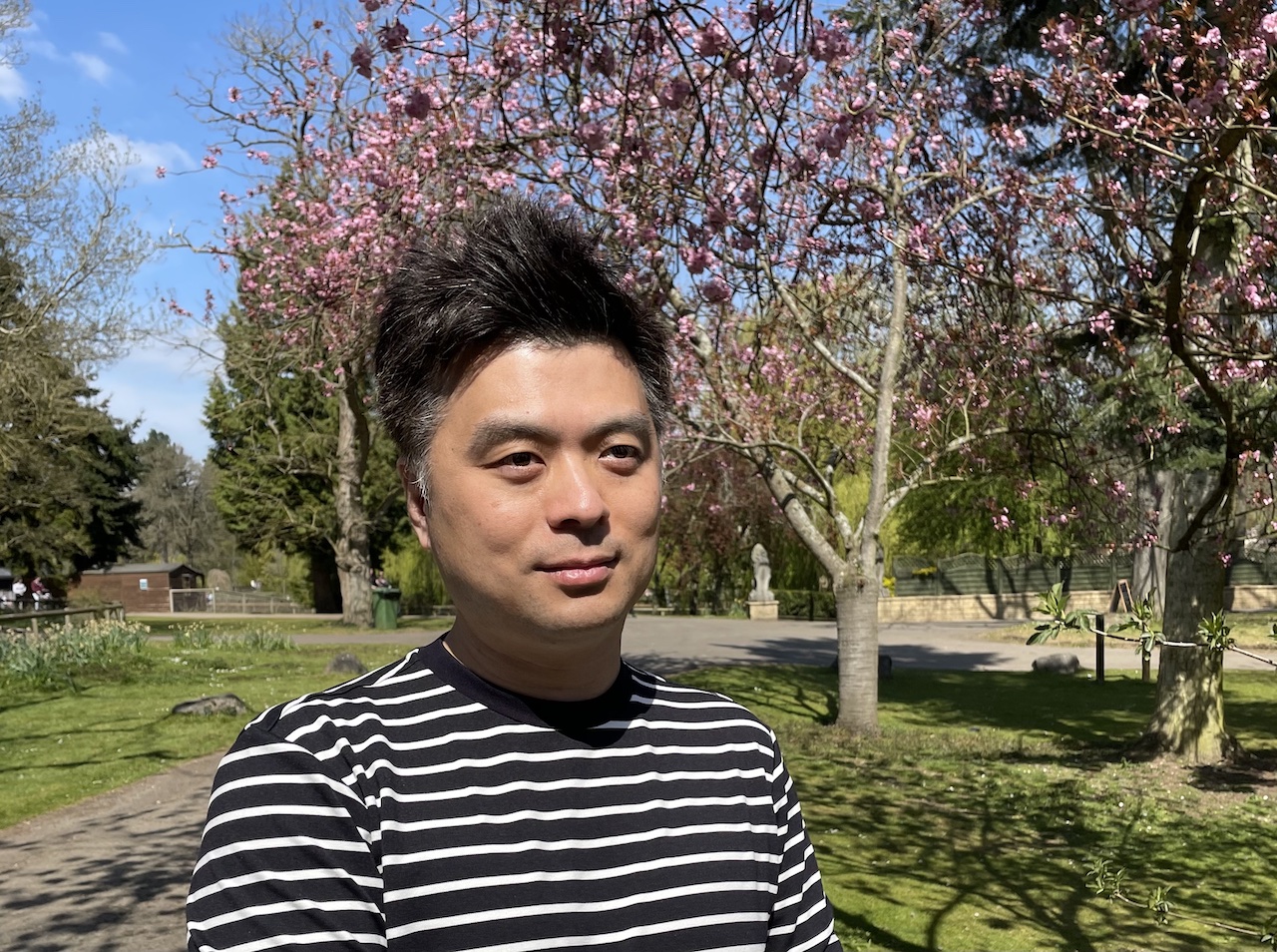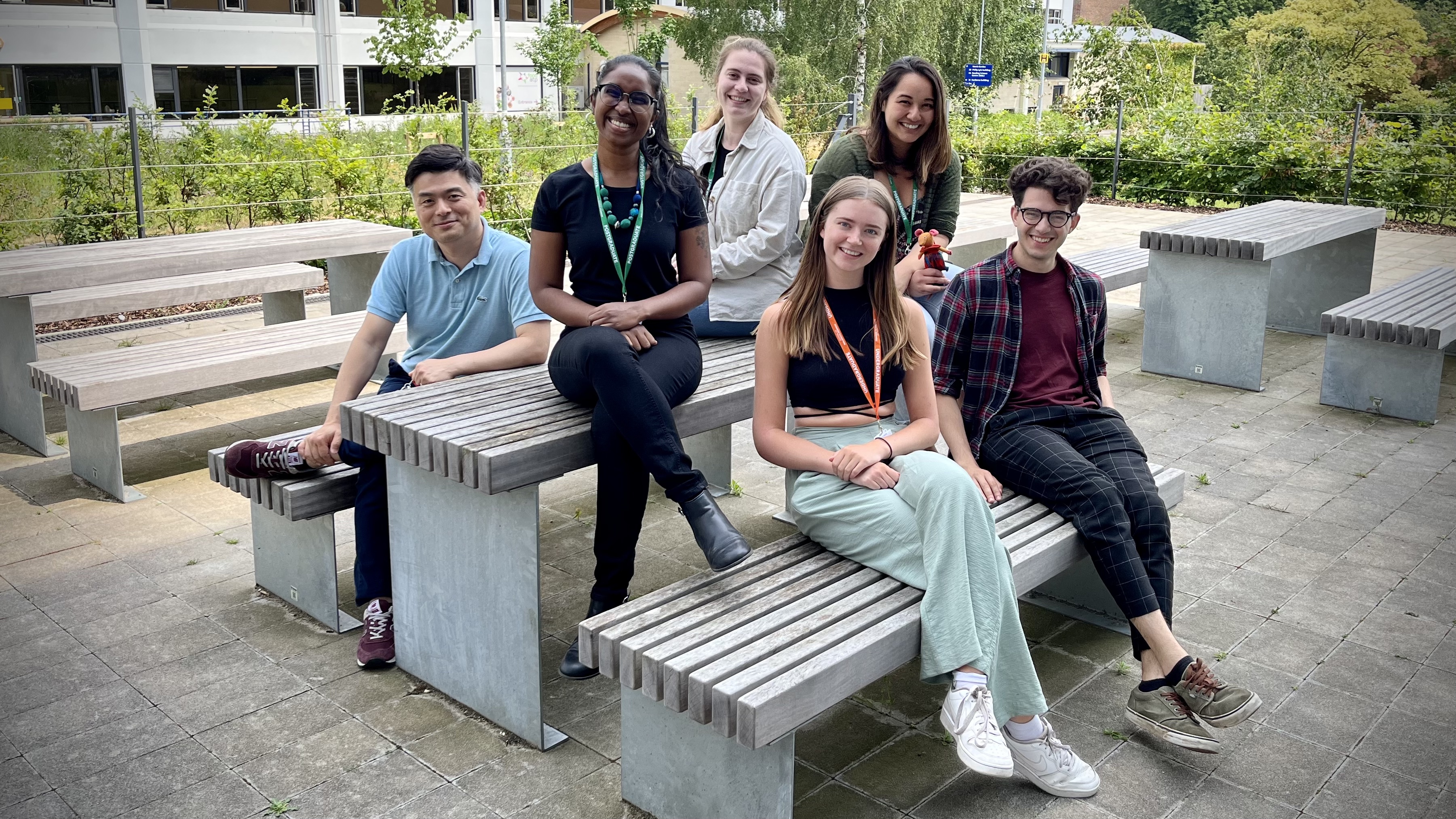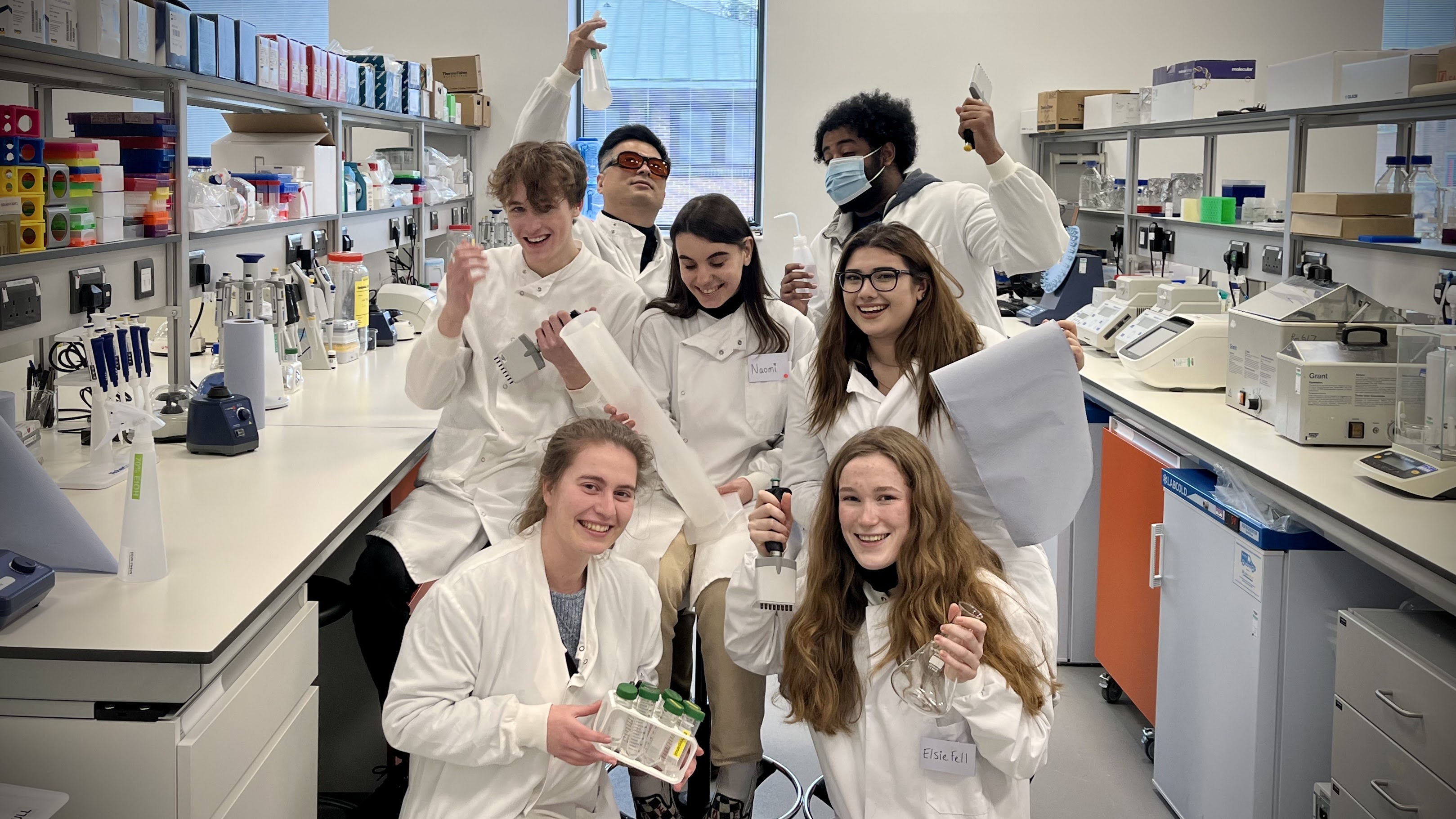Research
We are a bioinformatics-led research lab aspiring to better understand questions in the abundance, diversity, activity and interactions of microbes in a wide range of ecosystems using cutting-edge techniques and technologies.
Equipped for bioinformatics, state-of-the-art molecular biology and genomics research, we have the capacity to accommodate high-throughput molecular biology research as well processing Big Data using our HPC servers dedicated for multi-omics analyses.
Bioinformatics tools developed by the Group includes PIPITS (metabarcoding) and ResPipe (AMR profiling from shotgun metagenomes).
Bacterial & Fungal Omics
Drivers of communities & functions
Omics (bioinformatics & a little bit of wetlab)
- Bacteria & fungi in built environment
- Antimicrobial Resistance in the Environment
- Impact of Antibiotics on Microbial Communities
- Freshwater Microbial Ecology
- Prokaryotic Genome Size and its implications
Genomics
Multi-Omics
Bioinformatics
- Metagenomics & Meta-transcriptomics
- Multi-dimensional data analyses
- Tool / algorithm development
- Database creation & interpretation
Genomes
Wet-lab & Bioinformatics
- Next Generation Sequencing
- Use of long-read sequencing & hybrid assembly
People
Current and Past Members

Dr Soon Gweon - Group Leader
- I am an Associate Professor at the School of Biological Sciences, University of Reading (2017 - current).
I read Genetics at Nottingham University and Bioinformatics (Structural Biology) at Cambridge University. Prior to my current position, I spent a number of years at the UK Centre for Ecology & Hydrology (2011 - 2017).
As a bioinformatician, my interests are primarily in tool development, application and data analysis. When questions arise however, I exploit cool molecular techniques to further answer questions/hypotheses which all lead to more interesting bioinformatics!
Zoe Withey
- Doctoral Researcher (2019 - current) UKRI NERC SCENARIO DTP, Research in Built Environment Microbial Ecology.
Ana Carolina Yamakawa
- Doctoral Researcher (2022 - current) UKRI NERC SCENARIO DTP, Research in AMR and pathogen dissemination via rodents.
Ashinsa de Silva Wijeyeratne
- Doctoral Researcher (2022 - current), Fate of DNA and AMR in the enviroment.

Gweon Lab Group - Summer 2023

Gweon Lab Group - Spring 2020
Past members
- Emily Wright UROP - Temperature Optimisation of Sparganium-associated bacteria (2022 - 2023)
- Marcello Beltrami UG - Complete Genome Sequence of Pantoea agglomerans LS1 Using Illumina and Nanopore Sequencing (2022 - 2023)
- Phoebe French UG - Chitinophaga spargani sp. nov., isolated from rhizosphere of Sparganium erectum (2022 - 2023)
- Jasper Almond UG - Characterisation of novel environmental bacteria (2022 - 2023)
- James Bussingham UG - Characterisation of novel environmental bacteria (2022 - 2023)
- Alex Thomas UG - Characterisation of novel environmental bacteria (2022 - 2023)
- Naomi Jenkins Martinez UG - Mycobial community assemblages in sink drains across a university campus (2021 - 2022)
- Elsie Fell UG - Mycobial community assemblages in sink drains across a university campus (2021 - 2022)
- Alisha Awan UG - Mycobial community assemblages in sink drains across a university campus (2021 - 2022)
- Naol Duguma UG - Mycobial community assemblages in sink drains across a university campus (2021 - 2022)
- Ed Neary UG - Mycobial community assemblages in sink drains across a university campus (2021 - 2022)
- Elin Smith UG - Sink Microbiome (2021 - 2022)
- Lucy Bates MSc in Environmental Omics - WGS, Analysis & Phenotypic Characterisation of a Novel Strain of P. agglomerans (2020 - 2021)
- Alex Stormer MSc in Environmental Omics - Urinal Microbiome (2020 - 2021)
- Jack Lindsell Summer Researcher / UG (2020 - 2021)
- Lucy Wells UG - Environmental Omics (2019 - 2020)
- Laura O’gallagher UG - Environmental Omics (2019 - 2020)
- Max Long UG - Environmental Omics (2019 - 2020)
- Kai Smith UG - Environmental Omics (2019 - 2020)
- Kieren Mundy UG - Environmental Omics (2019 - 2020)
Vacancies
POSTDOCTORAL RESEARCHERS
Our group is always looking for talented and motivated researchers interested in working on questions of mutual interest. Please contact us if you are interested.
Any funded positions will be posted here, but we are happy to discuss the possibilities to support funding applications or fellowship application and work on proposals. See here for potential source of funcing.
PhD STUDENTS
We welcome new PhD students in our group, to work on questions related to Molecular Ecology, Microbial Ecology, eDNA, Antimicrobial Resistance, Metagenomics and related areas. The PhD application cycle typically begins in October prior to the year of start of course, and closes in December (see details here).
Please contact us directly with a copy of your CV and a 2-page research statement if you are interested. Please consult the relevant university webpage for other potential sources of funding. Tips on how to contact a potential PhD supervisor.
VOLUNTEER RESEARCH ASSISTANTS / INTERNS
We welcome motivated graduate students to join our group, to work alongside more experienced researchers. We are only able to consider applications from students who are willing to commit six months or more to work in the group. Internship applications from research master's programmes are especially welcome.
We are happy to welcome a very limited number of undergraduate students over vacations, and strongly encourage students to seek funding from the UROP programme, or external organisations.
In all cases, please get in touch with us first for an informal chat by email.
Publications
2023
A pile of pipelines: an overview of the bioinformatics software for metabarcoding data analyses.
2023 | Journal Article | Molecular Ecology Resources (accepted)
Microbial diversity and antimicrobial resistance in faecal samples from acute medical patients assessed through metagenomic sequencing.
2023 | Journal Article | PLOS ONE
Mycobial community assemblages in sink drains across a university campus.
2023 | Journal Article | Environmental DNA
2022
Citizen science monitoring reveals links between honeybee health, pesticide exposure and seasonal availability of floral resources.
2022 | Journal Article | Scientific Reports
Sedimentary DNA records long-term changes in a lake bacterial community in response to varying nutrient availability.
2022 | Journal Article | Environmental DNA
The interactions and hierarchical effects of long‐term agricultural stressors on soil bacterial communities.
2022 | Journal Article | Environmental Microbiology Reports
Both environmental and host genetic variation shape the fungal endophyte community within needles of Scots pine (Pinus sylvestris).
2022 | Journal Article | Fungal Ecology
Accumulation of nylon microplastics and polybrominated diphenyl ethers and effects on gut microbial community of Chironomus sancticaroli.
2022 | Journal Article | Science of The Total Environment
2021
Equine Grass Sickness (A Multiple Systems Neuropathy) is Associated with Alterations in the Gastrointestinal Mycobiome.
2021 | Journal Article | Animal Microbiome
Gut and faecal bacterial community of the terrestrial isopod Porcellionides pruinosus: potential use for monitoring exposure scenarios.
2021 | Journal Article | Ecotoxicology
A genomic epidemiological study shows prevalence of antimicrobial resistance in Enterobacterales is associated with the livestock host, as well as antimicrobial usage.
2021 | Journal Article | Microbial Genomics
Beyond taxonomic identification: integration of ecological responses to a soil bacterial 16S rRNA gene database.
2021 | Journal Article | Frontiers Microbiology
Bacterial communities in larger islands have reduced temporal turnover.
2021 | Journal Article | The ISME Journal
Population-level faecal metagenomic profiling as a tool to predict antimicrobial resistance in Enterobacterales isolates causing invasive infections: A study across three settings in Cambodia, Kenya, and the UK.
2021 | Journal Article | EClinicalMedicine
Niche and local geography shape the pangenome of wastewater- and livestock-associated Enterobacteriaceae.
2021 | Journal Article | ScienceAdvances
Characterization of communal sink drain communities of a university campus.
2021 | Journal Article | Environmental DNA
Neonicotinoid use on cereals and sugar beet is linked to continued low exposure risk in honeybees.
2021 | Journal Article | Agriculture Ecosystems & Environment
Integration of DNA extraction, metabarcoding and an informatics pipeline to underpin a national citizen science honey monitoring scheme.
2021 | Journal Article | MethodsX
Contrasting community assembly processes structure lotic bacteria metacommunities along the river continuum.
2021 | Journal Article | Environmental Microbiology
2020
Interacting effects of land use type, soil microbes and plant traits on aggregate stability.
2020 | Journal Article | Soil Biology & Biochemistry
Genomic surveillance of Escherichia coli and Klebsiella spp. in hospital sink drains and patients.
2020 | Journal Article | Microbial Genomics
Nutrients influence the dynamics of Klebsiella pneumoniae carbapenemase producing enterobacterales in transplanted hospital sinks.
2020 | Journal Article | Water Research
Rhizosphere bacteria are more strongly related to plant root traits than fungi in temperate montane forests: insights from closed and open forest patches along an elevational gradient.
2020 | Journal Article | Plant and Soil
Genomic network analysis of environmental and livestock F-type plasmid populations.
2020 | Journal Article | The ISME Journal
Accumulation of polybrominated diphenyl ethers and microbiome response in the great pond snail Lymnaea stagnalis with exposure to nylon (polyamide) microplastics.
2020 | Journal Article | Ecotoxicology and Environmental Safety
2019
Genetic, epigenetic and microbiome characterisation of an earthworm species (Octolasion lacteum) along a radiation exposure gradient at Chernobyl.
2019 | Journal Article | Environmental Pollution
The pH optimum of soil exoenzymes adapt to long term changes in soil pH.
2019 | Journal Article | Soil Biology & Biochemistry
The impact of sequencing depth on the inferred taxonomic composition and AMR gene content of metagenomic samples.
2019 | Journal Article | Environmental Microbiome
2018
Land use driven change in soil pH affects microbial carbon cycling processes.
2018 | Journal Article | Nature Communications
Soil bacterial networks are less stable under drought than fungal networks.
2018 | Journal Article | Nature Communications
Environment and host as large-scale controls of ectomycorrhizal fungi.
2018 | Journal Article | Nature
2017
Environmental metabarcoding reveals contrasting belowground and aboveground fungal communities from poplar at a Hg phytomanagement site.
2017 | Journal Article | Microbial Ecology
Assessment of the bimodality in the distribution of bacterial genome sizes.
2017 | Journal Article | The ISME Journal
Helminth burden and ecological factors associated with alterations in wild host gastrointestinal microbiota.
2017 | Journal Article | The ISME Journal
2016
Soil pH effects on the interactions between dissolved zinc, non-nano- and nano-ZnO with soil bacterial communities.
2016 | Journal Article | Environmental Science and Pollution Research
Mapping and validating predictions of soil bacterial biodiversity using European and national scale datasets.
2016 | Journal Article | Applied Soil Ecology
Sequence and organization of the complete mitochondrial genome of the blackfly Simulium variegatum (Diptera: Simuliidae).
2016 | Journal Article | Mitochondrial DNA Part B
- 2015
PIPITS: an automated pipeline for analyses of fungal internal transcribed spacer sequences from the Illumina sequencing platform.
2015 | Journal Article | Methods in Ecology and Evolution
Rearing and foraging affects bumblebee (Bombus terrestris) gut microbiota.
2015 | Journal Article | Environmental Microbiology Reports
Catchment-scale biogeography of riverine bacterioplankton.
2014 | Journal Article | The ISME Journal
Bio-Linux as a tool for bioinformatics training.
2012 | Journal Article | IEEE
Organisation of the pantothenate (vitamin B5) biosynthesispathway in higher plants.
2003 | Journal Article | The Plant Journal
Contact
Location:
Health and Life Sciences Building, University of Reading, Whiteknights, Reading RG6 6EX
Email:
h_dot_s_dot_gweon_at_reading_dot_ac_dot_uk